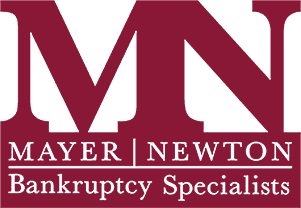Bankruptcy is a concept that many people are aware of, but there are many more people that do not necessarily know how the process works. This piece will highlight the three main types of bankruptcy that tend to be filed, what they have in common, and where they differ.
What All Types of Bankruptcy Have in Common
No matter which type of bankruptcy you wish to file, there are key benefits they all hold. One of these benefits is “automatic stay.” Automatic stay disallows all creditor actions against you as soon as you file. It stays in place for the duration of the bankruptcy and allows you to focus solely on getting your finances in order without creditors and lenders breathing down your neck.
All bankruptcies also allow for a discharge or a release from your debts. Some bankruptcies may take longer than others, but they all have the same goal in mind: helping you get rid of your debt. You also will not have to forfeit all of your assets/property in order to complete any bankruptcy. Though there may be some liquidation of assets, you will never be forced to give up everything you own in order to get rid of debt.
Chapter 7
The first type of bankruptcy we will take a look at is Chapter 7. It is known as the “straight/liquidation” bankruptcy, where assets that are not considered exempt under the law are turned over to a trustee. The trustee then sells the property in order to pay off creditors and relieve you of debt.
This is the most common form of bankruptcy that allows you to eliminate large amounts of debt in a short amount of time. Some of the debts that can be discharged by Chapter 7 include:
- Credit card debt
- Medical debt
- Personal loans
- Past-due utility bills
- Business debts
There are certain requirements you must meet in order to be eligible for Chapter 7. For starters, your income must be below the median income in Tennessee, as well as having low to no disposable income. Individuals who need at least five years to pay off their debts, which are more than half of their annual income are also able to gain a Chapter 7 discharge.
Chapter 13
Chapter 13 cases are known as “reorganization” bankruptcies. They are designed to create a brand new payment plan, over a 3-5 year period, to help you catch up on all of your past-due payments.
With creditor harassment being halted due to automatic stay, it gives you the time you need to catch up without creditors constantly being on your heels. It also allows you the opportunity to stop your home from being foreclosed or your property from being repossessed.
The main benefits of Chapter 13 include being able to have some of your debts discharged while paying back less than you originally owed by the end of the process. You are also able to maintain possession of the property you are making payments on during your new plan. There are certain requirements you must meet, however, when attempting to file for Chapter 13:
- You were not eligible to file under Chapter 7
- You have not had a previous bankruptcy dismissed 180 days prior to filing
- You fall within the debt limits
- You reasonably do not have the ability to make your current payments.
Chapter 11
Chapter 11 bankruptcies are only available to business owners who are at risk of shutting down. It allows for the opportunity to reorganize debts and assets to pay back creditors over a period of six months - two years. Not only does Chapter 11 help businesses get rid of their debts, but it also allows business owners to keep their doors open and pursue profit. This means filers are able to keep their client base and stay in control of all business operations during the bankruptcy.
Chapter 11 filers are also afforded reduced rates on high-interest loans and extended payments of unsecured tax debts for up to five years. Countless businesses have also suffered due to the current health crisis, and Chapter 11 bankruptcies have never been easier to file for those that need it. The Small Business Reorganization ACT (SBRA) has been put in place to expedite small business bankruptcies and make the filing process more affordable to help keep America’s businesses open and out of debt.
Contact Our Experienced Team Today
There are many reasons why someone would need to file for bankruptcy. With over 50,000 cases under our belts, we are exceptionally prepared to help guide you through the process with compassionate and personalized services.
If you have questions about which type of bankruptcy is right for you, contact us today through our website
or give us a call at (865) 328-7993 for a free consultation!


